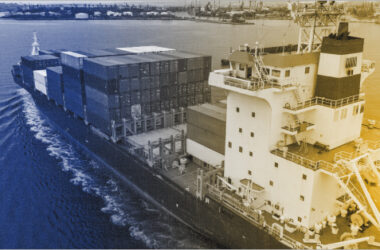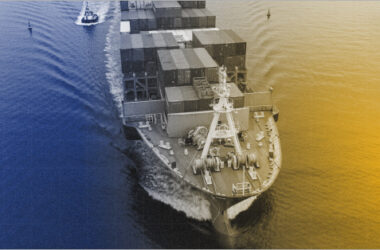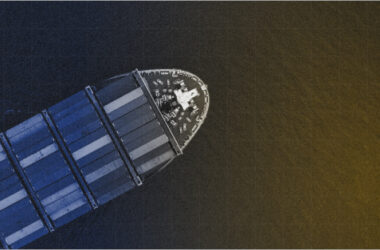The vast oceans serve as vital lifelines for global trade. However, transporting valuable cargo across these expansive waters comes with inherent risks. From unpredictable weather patterns to collisions and even piracy, unforeseen events can wreak havoc on your shipment. This is where Marine Insurance steps in, acting as a protective shield for your cargo during its maritime journey.
In this blog post, we will be dissecting the ins and outs of a Standard Marine Insurance Policy in India. By the end of this voyage of knowledge, you will be well-equipped to navigate the complexities of marine insurance in India and ensure your cargo reaches its destination safe and sound. Let’s set sail!
Understanding Marine Insurance
Marine Insurance is crucial for businesses that engage in the import and export of goods. It mitigates risks associated with maritime activities, which can be highly unpredictable due to factors like weather conditions, piracy, and operational hazards. A Standard Marine Insurance Policy in India encompasses a broad range of coverage options tailored to meet the needs of different stakeholders in the maritime industry.
Key Coverages provided in Marine Insurance India
A standard Marine Insurance Policy in India provides a range of coverages designed to protect against the various risks associated with maritime activities. These coverages can be categorized into several main types, each addressing specific aspects of maritime operations. Here is a detailed overview of the coverages provided by a Standard Marine Insurance Policy in India:
1. Hull Insurance
- Coverage:
- Physical Damage: A Standard Marine Insurance Policy covers the physical damage to the ship’s hull and machinery caused by perils of the sea, including storms, waves, and other natural hazards.
- Fire and Explosion: Protects against damage due to fire and explosions aboard the vessel.
- Collision: Provides coverage for damages resulting from collisions with other vessels or objects.
- Piracy: Includes losses due to acts of piracy and violent theft by outsiders.
- General Average: Covers the shipowner’s share of general average losses, where sacrifices are made for the common good of all interests in the maritime adventure.
2. Cargo Insurance
- Coverage:
- Transit Risks: A Standard Marine Insurance Policy covers the goods being transported against loss or damage during transit, whether by sea, air, or land.
- Perils of the Sea: Protects against natural maritime hazards, such as sinking, capsizing, or heavy weather.
- Fire and Explosion: Covers losses due to fire and explosions affecting the cargo.
- Jettison: Protects against losses when cargo is thrown overboard to save the vessel or other cargo.
- Theft and Pilferage: Covers theft or pilferage of goods during the transit period.
- War and Strikes: This can include optional coverage against war risks and strikes, riots, and civil commotions.
3. Freight Insurance
- Coverage:
- Loss of Freight: A Standard Marine Insurance Policy covers the loss of freight revenue that a shipper is entitled to receive, which may be lost if the cargo is damaged or the voyage is interrupted.
- Freight Payable in Advance: Protects freight paid in advance in the event the cargo does not reach its destination due to insured perils.
4. Marine Liability Insurance
- Coverage:
- Third-Party Liability: A Standard Marine Insurance Policy covers legal liabilities to third parties for bodily injury, loss of life, and damage to third-party property caused by the insured vessel.
- Collision Liability: Protects against liabilities arising from collisions with other ships.
- Pollution Liability: Covers liabilities for environmental damage caused by pollution from the insured vessel.
- Wreck Removal: Covers the costs associated with removing a wrecked vessel if required by law or ordered by authorities.
- Fines and Penalties: This can include coverage for fines and penalties imposed due to breaches of regulations.
5. Additional Coverages
- War Risks Coverage: A Standard Marine Insurance Policy covers losses due to war, civil war, revolution, rebellion, insurrection, or any hostile act by or against a belligerent power.
- Strikes, Riots, and Civil Commotion (SRCC) Coverage: Provides coverage for losses due to strikes, riots, and civil commotions.
- Port Risks Insurance: Covers the vessel while it is laid up in a port, providing protection against risks specific to the port environment.
Exclusions in Marine Insurance India Policies
While Marine Insurance provides extensive coverage, there are common exclusions, including:
- Wilful Misconduct: Losses or damages resulting from the wilful misconduct of the insured.
- Inherent Vice: Damage arising from the natural characteristics of the goods (e.g., fruit rotting due to its perishable nature).
- Ordinary Wear and Tear: Normal wear and tear, gradual deterioration or natural loss in weight or volume.
- Improper Packing: Losses due to insufficient or inappropriate packing or storage of goods.
- Nuclear perils and War Exclusions: Standard policies typically exclude losses due to nuclear incidents, war, and related perils unless specifically covered by additional endorsements.
Conclusion
A standard Marine Insurance Policy in India provides comprehensive protection against a wide array of risks encountered in maritime trade. These policies are essential for safeguarding the interests of shipowners, cargo owners, and other stakeholders in the maritime industry. Understanding the specific coverages and exclusions of a Marine Insurance India policy is crucial for ensuring adequate protection and mitigating financial risks associated with maritime operations.








